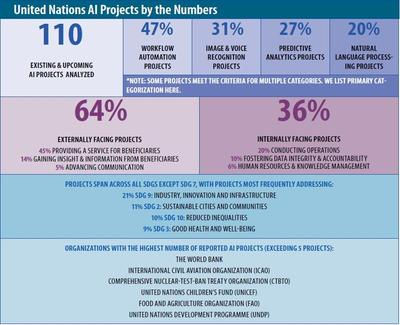The Digital Leadership Skills needed for Digital Transformation
- Aug 19, 2023
- 7 min read
Updated: May 7, 2025
20 August 2023
By Katja Hemmerich

Earlier this year, in its Review of the Management and Administration of UNFPA, the Joint Inspection Unit (JIU) recommended that the Executive Director regularly brief the the Executive Board about the implementation of UNFPA’s ICT transformation project, in particular the roll out of its new ERP system, Quantum (Recommendation #4, JIU/REP/2023/1). On 25 August 2023, the Board will receive such a briefing. The JIU recommendation assumes that both the Executive leadership and Board have the skills to oversee digital transformations, despite the fact that the Oversight Advisory Committee raised concerns about the level of digital transformation skills available in UNFPA for the ERP project (JIU/REP/2023/1 para. 164).
With UN 2.0 and the UN Secretary-General’s Quintet of Change highlighting digital transformation as a priority, leaders and oversight bodies across the UN are grappling with the challenges of digital transformation. Our spotlight therefore explores the digital leadership skills needed for leaders and members of governance mechanisms to guide and oversee digital transformation in the UN system.
What is digital transformation?
International organizations have long been using technology without using the now common term ‘digital transformation’. Why is the adoption of the latest technological innovations like artificial intelligence, machine-learning, cognitive computing or biometrics among others so different?
The term digital transformation aims to recognize that adoption of new digital technologies results in significant, and even disruptive, changes to an organization’s structure, processes, functions and business models. The organizational transformation resulting from the adoption of new digital technologies is bigger than what has been seen previously, and also inherently unique to each organization.
The level of change or disruption is hard to fully predict at the start of a digital transformation process. Employees, beneficiaries, partners and anyone who engages with the technology may find additional uses beyond what was initially envisaged, so organizational changes often evolve over time. Business process owners across the organization can be affected in a variety of different ways by new technologies and need to find process adaptations make sense from an organizational perspective without undermining other parts of the organization. These elements bring both a level of uncertainty and comprehensiveness to digital transformations that organizations have not previously experienced.
Changes in organizational systems also entail changes to how humans interact not only with the technology but with the adapted organizational systems, and even each other. All of these issues create new challenges for employees, managers and leaders. As the UN Department of Peace Operations (DPO) recognized in developing its digital transformation strategy:
"The strategy views digital transformation as a change process that is driven and enabled by digital technologies, but involves a significant measure of cultural change." – Strategy for the Digital Transformation of UN Peacekeeping
Why are ‘digital leadership’ skills needed?
UFNPA’s digital transformation strategy being discussed this week is focused primarily on the launch of a new Enterprise Resource Planning (ERP) tool to improve business processes and efficiency. But digital transformation in the UN spans across operational and business support to programming outcomes. A 2022 study of how the UN system is experimenting with artificial intelligence (AI) showed that 64% of projects are externally-facing across all SDG except no. 7 and 36% are internally-focused on improving operations and business processes. Accordingly, digital experimentation cuts across all areas of the UN’s work and this will only increase in future.
Leaders and governing boards across the UN will therefore increasingly be confronted by digital transformation and its impacts. The particular leadership challenge is that leaders are expected to drive digital transformation, while also continuing to deliver with current organizational systems. Governance bodies must ensure accountability and results now, while also ensuring the effective management of digital transformations for the future organization. This creates a phenomenal level of leadership complexity, which requires an updated set of leadership skills - digital leadership skills.
"As a number of recent studies point out, there is a need to have collective “digital literacy” at company boards and executive teams in order to face challenges of digital disruption of industries and organizations." – D. Kozanoglu & B. Abedin, Understanding the role of employees in digital transformation, Journal of enterprise information management (2021)
In its review, the JIU accepted that there was an element of unpredictability to UNFPA's digital transformation project and that changes were made along the way, in part to mitigate risks as they arose. The changing nature of the project and evolving risk management needed, which also led to an unforeseen increase in costs, are all reasons why the JIU recommended regular engagement between the UNFPA Executive leadership and the Board. Overseeing and guiding the project effectively does however required a shared level of digital literacy - a point which is repeatedly raised in empirical studies of digital transformations across organizations.
Digital literacy or technical understanding of new technologies is however only one element of digital leadership skills.
What are the most important digital leadership skills?
In a comprehensive review of studies of digital transformations, Professor Müge Klein of Türk-Alman University found five skill sets that were repeatedly highlighted as important for leaders:
Innovative Vision
Networking Intelligence
Adaptability
Ability to motivate and coach employees through change
Digital intelligence
While much of the research they reviewed is focused on private sector organizations, their findings are similar to the lessons learned by the UN System Staff College’s (UNSSC) UNLOCK programme, the UNDP Strategic Innovation Unit and the Geneva Innovation Movement, as we highlight below.
Innovative vision means that leaders have an innovative and entrepreneurial digital vision of the organization, its mandate and how it does business. Ultimately, it means recognizing that the status quo cannot, and should not, be maintained, and that technological adaptation is a part of leading any organization in the 21st century.
"Senior organizational leaders must be willing not only to sponsor or authorize change, but also to be the pioneers of innovation. Otherwise, innovation will remain something practiced by few, typically younger program staff, who have limited potential for driving change within the UN." – J.P. Flanding & G.M. Grabman, Purpose Driven Innovation: Lessons from Managing Change in the United Nations, (2022)
Networking intelligence refers to the ability to build and coordinate networks of collaborators, teams, change agents and stakeholders who are involved in, and impacted by, the digital transformation. As the JIU has pointed out both in its review of UNFPA and of ERP implementation across the UN system (JIU/REP/2020/5), the governing bodies must be a part of this network.
International organizations like the UN are complex, multi-stakeholder environments, and networking intelligence and capabilities are needed for any leadership endeavor. Organizational siloes seem to be particularly entrenched when it comes to technology initiatives, which led to considerable difficulties in implementing the first generation of ERP systems in the UN (JIU/REP/2020/5). Networking intelligence that facilitates collaborative engagement across silos can lead to different results in future. The Geneva Innovation Movement was able to demonstrate this during an experimental workshop in which technical and non-technical staff, including managers, were challenged to build a proxy particle detector at CERN, the European Organization for Nuclear Research. The teams able to bridge those professional silos the most quickly and effectively were the most successful.
Not surprisingly, adaptability, as a means of dealing with the unpredictability and uncertainty inherent in digital transformation is the third most commonly cited digital leadership skill. It’s a skill that everyone needs in dealing with digital transformation. The leadership element of adaptability, according to the UNDP Strategic Innovation Unit, is being able to improvise and bring accumulated experience to bear on a new situation where there are no clear answers, but a decision needs to be made.
"Ultimately, our emerging learning points to a somewhat opaque notion of needing to be comfortable with being uncomfortable." – Millie Begovic, Complexity & deciding how to decide: how can we better prepare for a world of “one-offs”?, UNDP Strategic Innovation Unit, 2022
As with any change process, the ability to motivate and coach employees through the change is a key element of digital leadership. The ERP case studies in Purpose Driven Innovation highlight the importance of having trusted change agents, who were not only accessible to employees, but also had regular, direct interactions with executive leadership to discuss employee concerns and motivations. The Geneva Innovation Movement observed that leaders who had trusted relationship with technical staff, or who were able to build it quickly, had a much higher success rate in building the proxy particle detectors.
"An existing good relationship between the two colleagues helped to understand each other and for the manager to understand what was going on. Asking questions and being open- minded to each other was as important as the trust in the other’s skills. It gave managerial team members the confidence boost that they were able to do the exercise with limited tech knowledge, going over the steps with great eye for detail but without understanding what we were doing exactly, although that understanding grew during the building process and while changing the parameters in the software." – K. Tatarinov, T. Ambos & M. Nordberg, Digital Skills for a Changing World, May 2023
Interestingly, digital intelligence, or some level of understanding of what new technologies are and how they can be used, only came up as the fifth most often cited digital leadership skill in Professor Klein’s literature review. An important point emphasized in various studies and lessons learnt is that leaders do not need to be technical experts, but they do need sufficient digital literacy to be able to ask the right questions and recruit the right technical experts.
"Senior managers do not need to know how to code but they need to be able to understand the basic philosophy behind it and to be able to convey their ideas in an understandable fashion to those who can then execute them as well as to understand the limitations of the technology." – K. Tatarinov, T. Ambos & M. Nordberg, Digital Skills for a Changing World, May 2023
What does this mean for Senior Leaders and Board members?
Both the UN and academic literature emphasize that these are skills that can be learned or adapted and enhanced on for application in the digital context. To help facilitate an informed dialogue at the UNFPA Executive Board briefing, and for other such discussions, we propose some practical learning tools for leaders, Board members and learning professionals:
To understand what digital transformation means in the UN context and how it can bring value to UN operations: Digital Transformation at WFP webinar recording at UN Innovation Network.
For a conceptual understanding of of trending and emerging technology targeted at managers who are not IT professionals, ICDL Insights, who created the International Computer Driving License, has a series of short online modules.
LinkedIn Learning also offers a variety of short courses on digital transformation for leaders, including a Learning Path to Master Digital Transformation from which you can choose the most relevant videos.
The Geneva Innovation Movement offers a variety of digital transformation skills workshops and webinars, which can also be tailored for organizations.



